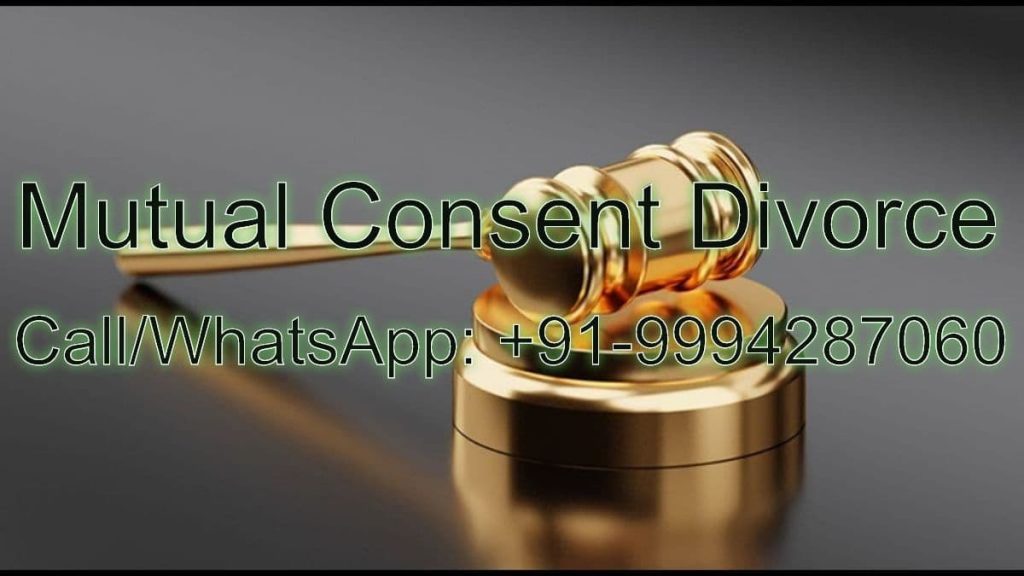Find the Best Divorce Lawyers for Mutual Consent Divorce cases in Chennai India. Choose the Family Court practicing in the Chennai Rajendra Family Court Law Firm in Madras High Court, Chennai, Tamil Nadu, India. Consult with a Senior Divorce Case Attorneys today to resolve the Family dispute today
What is the meaning of Divorce by Mutual Consent?
Mutual Consent Divorce is a simple way out of the marriage and dissolves it by law. an important requirement is the mutual consent of husband and wife. There are two aspects Husband & Wife have to reach a consensus. One is the alimony or maintenance problems. In accordance with Law no minimum or maximum maintenance.

This can be a character or figure no. The next important consideration is the Child. It can also work effectively between the parties. Daycare in Mutual Consent Divorce can be divided or shared or exclusive depending on the understanding of the couple.
When a divorce by mutual consent can be submitted?
The parties intend to dissolve the marriage and were asked to wait at least one year from the date of the wedding.
They must show that they have lived apart for a period of one year or more before the presentation of the petition for divorce and that during this period of separation they have not been able to live together as husband and wife.
Where to file for Mutual Consent divorce?
In the family court of the city/county where both partners live together for the last time, which is the home of their marriage.
Are there different laws of different religious divorce in India?
There are different laws of divorce for different religions. Hindu (which includes Sikhs, Jains, and Budh) is governed by the Hindu Marriage Act, of 1955. Christians were governed by the Indian Divorce Act-1869 and the Indian Christian Marriage Act, of 1872. Muslims are governed by the Law of Personnel of Divorce and Dissolution of Marriage Act 1939 and The Muslim Women (Protection of Rights on Divorce) Act, 1986. Similarly, Parsees is governed by the Parsi Marriage and Divorce Act 1936. And there are also secular laws that specifically referred to the Marriage Act, of 1954.
How to apply for a divorce by mutual consent? What happens in court?
The divorce petition is in the form of a statement, which will be submitted to the family court. After filing and recording statements from both sides, the court generally disperses the material for a period of 6 months.
After six months the parties should present themselves again in court to make a second motion filed to confirm the mutual consent earlier. Only after this second movement that the divorce decree granted by the court.
Either party can get back the Mutual Consent Divorce application after filing in court. What will happen to it?
During this period of 6 months when the petition is pending in court, one partner is entitled to withdraw consent, together with an application filed before the court stating that he/she does not want to ask for a divorce by mutual consent.
In such circumstances, the court gave no divorce decree.

What can other couples do in such circumstances?
There are no choices available to other parties for such circumstances except for the normal filing of a divorce petition under Section 13 of the Hindu Marriage Act, 1950.
In such situations a divorce can be granted only on the basis of certain specified as cruelty; desertion; voluntary sexual intercourse with other people; the other spouse becomes of unsound mind; religious conversion with another couple; Leprosy; sexually transmitted diseases; pair after leaving the world or lost for a longer period of 7 years.
Can the spouse remarry without obtaining a divorce from the current partner?
Remarriage without getting a divorce is an offense punishable by seven years in prison.
If one partner is not heard from for a long time, the divorce should be applied?
If there is evidence of an absence couple to other couples without information about his whereabouts for a period of seven years continuously, the petition must be filed in this case in court.
When people who are divorced can marry again?
Depending on the nature of the decision, after the expiration of three months from the date of the decision if no notice of appeal is received by the remarriage of others.
How much time does the entire process take from the submission of the application for approval together in court until the passing of the decision (judgment) by the court?
It takes from six months to one year from the date of application. It varies from case to case and place to place.
What are the Divorce Lawyer’s Fees for Mutual Consent Divorce cases?
The Cost, Legal Fees, or Charges of Divorce Case Lawyers for Mutual Consent Divorce cases is decided based on the Work hours and effort of the Legal Team. Here the Fees for the Experienced Advocate may vary according to our Seniors which are not the same for all Attorneys.
The High Court and Supreme Court Attorneys for Mutual Consent Divorce cases normally charge more since they are highly qualified experts. Firstly Get a Basic Free Legal Consultation of 5 to 10 minutes for Mutual Consent Divorce cases. Then thereafter the Law firm can decide the other Consultation and Litigation fees on the Mutual Consent Divorce cases.
What are the costs involved in a divorce with consent?
If you hire a lawyer, it would be somewhere from Rs 25,000 to Rs 75,000.
But if you get the documentation done by us and file on your own without an attorney, the cost will be very low. You will have no problem submitting your application with our guidance, and you will save a lot of money.

Other legal info
- Contested Divorce Cases: The Best Advocates Battling for Equality
- Divorce Cases
- Divorce Lawyer: How to Find the Best Advocate Near Me?
- Judicial Separation: How To Resolve Family Disputes You Need to See?
- Madras High Court removes the prohibition of costs incurred to foreign education and training costs of a partner
Contact Top Advocates for Mutual Consent Divorce cases
Call/WhatsApp/IMO: +91-9994287060 to make an appointment with a suitable Divorce Lawyer for a Legal Consultation. Then, you can come to conclusion on engaging an Advocate for Mutual Consent Divorce cases.

